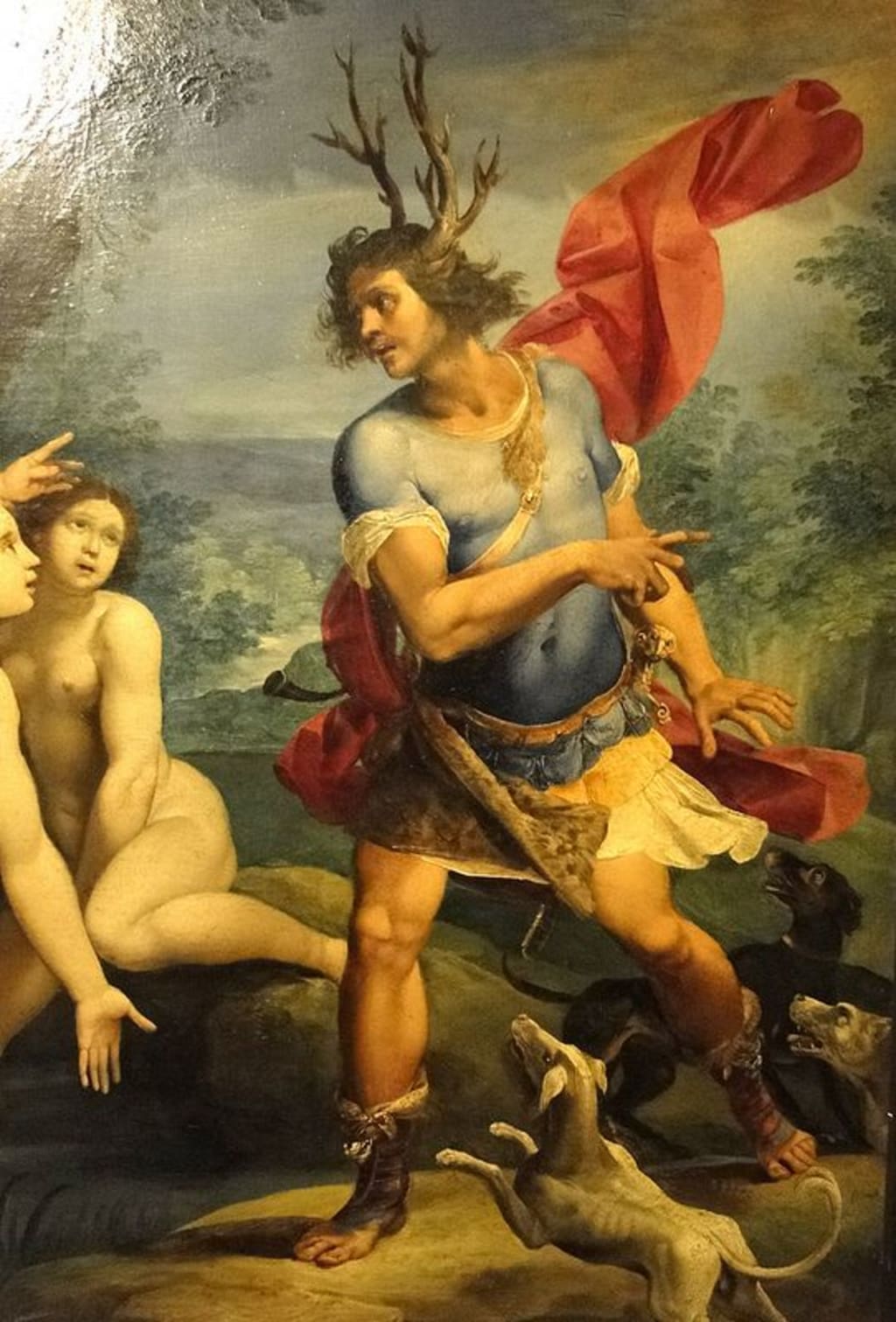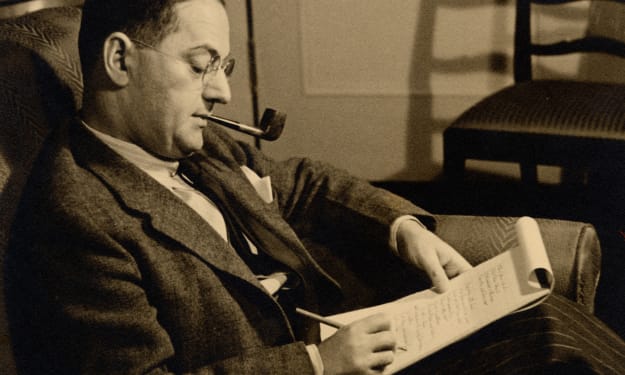
‘He didn’t have to read it.’ That was her consolation after Julian’s…accident.
Merging onto I-91, Katelyn didn’t know what else to say. It wasn’t her fault—it couldn’t be. When she received the letter eight days ago, she couldn’t possibly have known what would happen. But her father? Could he have known? When he wrote, ‘I’m dying, Kati. These will be my last words to you,’ did he also know how she would choose, or what it would do to Julian?
'Why didn’t he just send his testament to both of us? Why me first?’ she railed at a passing minivan, quoting silently: “It’s not much: only twenty thousand dollars. I expected there would be more, but I was never any good with figures—or moderation. It might be useful, though: a down-payment on a house, pay off some liberal arts-debt. Bail.” He could have signed his name, ‘Quiet Cynicism,’ and it would have held in court. But this was legit. Prosy jabs and all, this was the last will and testament of Jacob Nicopoulos.
Holocaust-survivor at eleven months, infant Jacob was funnelled south from Nazi Yugoslavia all the way to his adoptive Greek family off the coast of Turkey, where he remained until fourteen, when he stowed away on a ship bound for the United States. ‘Since when does anyone go to sea without luggage?’ He often referred to himself like a parcel changing hands, and the kids bristled every time. This man, attentive, surprised by nothing, was too valuable to a pair of six and seven year-old minds to picture so shabbily—especially since their mother died on one of her long corporate trips. He never spoke of her, but never had to. His silence seemed to convey more than they had a right to know.
Growing up, he never betrayed them: he never questioned Katelyn’s choice in dates, and when she left for college, never secretly rushed Julian along. It was hard for a sated pessimist to plan futures, so he was always effortlessly present.
That’s what made Katelyn’s eyes well up when she remembered the letter. ‘How can he disappear? The world just shrunk, and I need Exit…27.’ She forgot her turn-signal and nearly struck the sports-car to her left, which honked, irate. She proceeded mentally to the worst part: “The twenty thousand is one option. There is also something I’ve had a very long time—a little black Moleskine notebook. I suppose I should have tossed it years ago, but just couldn’t bring myself to do it. It turned out (for lack of better terms) too accurate, and now stands in for a kind of autobiography. Lately I trust it more than I trust myself.”
‘What did it mean? He didn’t have alzheimers or dementia,’ she reflected. ‘He wasn’t forgetful or talkative, and he trusted himself before anyone born.’ The indecisiveness was more her brother than her father.
When she had called him five days ago, after her choice, Julian had insisted he knew nothing about the notebook: ‘What did he need an autobiography for, anyway? We could have recited it in full to both people who’d care to listen.’
Katelyn smiled nervously at her father’s vituperous humour shining through his son, almost ignorant of its source. ‘I know. I hope you understand, though. You’re doing okay, but I really need to pay off this semester. He wasn’t wrong about the debt…I just couldn’t tell you or ask first, or I wouldn’t get the money.’
‘I read the copy of the letter you attached. That’s what I don’t understand: why he wrote it like that.’
‘—I pick first, alone, and whatever I don’t want is yours?’
‘Yeah. I don’t understand that…Look, I’m not mad you took the money. You need it, and I don’t. It just doesn’t feel right. Like he couldn’t write that. He was always so obsessed with being fair—“equal portions.”’
‘Have you read it yet?’
‘No.’ It had been four days since the funeral.
‘You know I’m not allowed.’
‘I am aware…which is why you shouldn’t be asking.’
‘I’m not. Not really…’
‘—Not at all. That’s the one thing I’ve got on your twenty grand.’
‘So you are mad.’
‘No. Just interested to get out of this mess with something intact.’
‘I hope it’s worth it,’ she offered demurely.
‘Don’t apologise.’ She heard him smile over the phone.
‘I won’t.’
He probably had it in his breast pocket, or was leafing through it to admire the handwriting while they talked.
“Equal portions,” she pronounced into the steering wheel, replaying Julian in her mind.
She couldn’t have apologised: Highway 2 made that clear. The trees were closer; there were houses in the distance, unincorporated. It wasn’t the twenty thousand; she had lied to Julian. She could have done just fine without it: refinancing, maybe even a grant.
The day before yesterday she had sat down with her father's lawyer at the bank.
‘Good morning, Katelyn,’ Mr. Randolph said, leaning forward to extend her a warm handshake. ‘I’m so sorry.’
‘Good morning to you both,’ the bank clerk interjected awkwardly. Everyone took a chair and adjusted.
‘To get started, here are some papers verifying the identity of the deceased. Obviously they’re more for us than for you, but would you initial and date at the bottom? —Just to show that they passed through your hands. We’ll do all the filing.’
The houses grew slightly more dense, indicating a town up ahead. She could almost see the watertower. It had always been so perfect. ‘Dad was like Atticus Finch if he were bad-ass,’ she mused, ‘who would want to change that? Back to Greece, where he met Mom, organising against the royalists, sabotaging the communists…Then, pulling to a stop sign, she started to cry. His stories were so good that at six or seven she’d never thought to double-check them. They stayed good enough that at sixteen and seventeen she didn’t want to. ‘Then Mom died, and the level of trust grew monumentally. You were in pain,’ she told her father, stalling the reflexes in her throat. ‘We couldn’t ask anything. We had to depend on you—that you were doing the best you could. For the right reasons.’
When she first read the letter, she knew mechanically what she had to do. She had heard his voice: “You can have the twenty thousand or the notebook, but not both. Whichever you don’t pick goes to your brother. And Kati, let this be my little foible. If the bank can verify you have spoken to Julian about this before coming to pick up the cheque, they have been instructed to reverse the distribution: you would get the book, and Julian would get the money.”
'“Foible”! Go alone, and trust me: like so many serial killers,’ she chuckled resentfully. He continued, “He or she who gets the book can under no circumstances share it with the other. No. Looking. Back.”
She checked her rear-view mirror. No one. She expected Julian, but he wasn’t coming this time. Had the phone call come before the trip to the bank? Is that why she couldn’t seem to find the blank highlighted for her initials? Why Mr. Randolph — whom she had known since preschool — now seemed in her mind a hairy, cartoonish ogre? Or had she known otherwise that the first page read “BIRTHPLACE: Springfield, Massachusetts,” and that a hideously familiar world proceeded on page two and three…‘But you don’t shoot yourself on account of a falsified birth certificate, do you?’ She caught herself: ‘Not false. But Julian—’ She crossed the intersection, rumbled over the disused railroad tracks and kept it slow into town.
‘Julian. What did you see? What did you see?’ she repeated, uncontrolled, making a left onto a leafy boulevard. She replayed their last conversation in her head until she couldn’t hear the car anymore.
“Don’t apologise.”
She pulled into the driveway. Her father’s house, its low, faded awning over the cracked walk, bay windows like crude sunglasses, sat unassumingly midway on the residential block. She got out and proceeded up the walk to the front door, unlocked. The livingroom mantle and wainscoting austere, there was still no television. The pictures hung in the same order as they had when they were kids: facing the windows, two larger prints in matching ornamental walnut frames flanked by small arrays of miniatures. She halted. It was here Julian and she had sat, listening rapturously to their father’s extemporaneous chronicle, and in the rare moments their imaginations drifted, allowed their eyes to wander these images. Both prints reproduced works by Giuseppe Cesari, a mannerist whom Jacob fanatically prised above all other painters. They may have been the last images he saw before his death somewhere in this house (they hadn’t told her exactly where).
On the left Andromeda had always looked so alert, her pale skin shocked by the dragon’s cavernous mouth. Of course her brother would save her. And to the right, Adonis, folded heavily on Venus’ knee, a grey-lipped man-child all at once. His sister will save him soon. Somehow as a child these two had always seemed confirmations of their bond: either she or Julian could be in trouble, but the other would come in time. She stood silently, feeling tears mount again. Suddenly she remembered the third—in the adjoining bedroom, Mom and Dad’s. Her feet crunched across stiff carpet in the live space, she opened the door, and instinctively knelt on the bed. Above her, Cesari’s ‘Actaeon,’ and something clicked.
‘Diana, incorruptible. Nothing compromised or spent on truths not her own. For what is a truth except something which repels alternatives?’ Katelyn continued, tired and almost catatonic, unaware she spoke aloud: ‘And can such a thing be seen? Can that which sees it survive? Poor Actaeon saw you naked. He saw a truth in the splendour of its jealousy. It was too accurate. And when he turned and tried to back away, his humanity was already sacrificed and changed into a dumb beast. What words describe the featureless? Like shotgun blasts the dogs pursued him, violator, house-breaker. How dare he disturb the world’s adequacy with his discovery? It’s you, Julian! Is it true? The notebook and the money? Equal portions?’
Scarcely taking her dry eyes from Actaeon’s face, frozen in expectant passion, she went to the bathroom, returned with a water glass and a clenched fist, and lay down on the bed. She didn’t really notice the pills as she drained the glass and fell asleep.
—
(AUTHOR’S NOTE. This story is in no way offered to promote suicide as a valid option. If anyone reading this story experiences suidical thoughts or tendencies, he or she is strongly encouraged to consult the National Suicide Prevention Lifeline, 800.273.8255.)





Comments
There are no comments for this story
Be the first to respond and start the conversation.